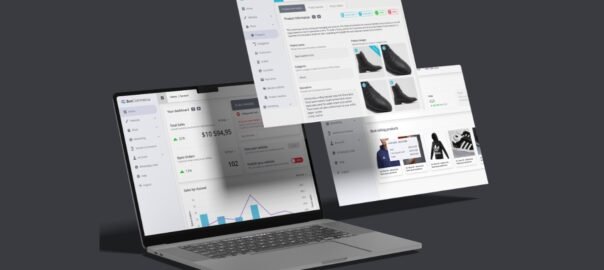Nkgwete IT Solutions has 11 years of experience in corporate IT support, and so when expanding the business to support the retail sector
Modern retailers looking to build on this need a seamless and reliable technology ecosystem to remain competitive and to serve consumers, especially during periods of high demand, says Nkgwete IT Solutions CEO, Siddika Osman.
According to Statistics SA, 2024 retail trade sales increased by 2,5% when compared with the previous year. Beyond this, five of the seven types of retailers as defined by the national agency showed positive year-on-year growth rates.
Osman says that while retailers spend a great deal of money investing in point-of-sale (POS) and other operational technologies, it is the daily functioning of all critical infrastructure, POS and end-point devices that can make or break a retailer’s success.
“Retailers manage complex technology ecosystems that need to be operating as expected in order to deliver a seamless customer and employee experience. However, as we all know, in the real world issues do crop up and it is precisely when this happens that a retailer needs peace of mind that they have rapid onsite technical support,” explains Osman.
Retailers often spend a big part of the year investing in new systems and capabilities to take advantage of key retail periods, such as Black Friday and the festive season, when there are significant upticks in volumes – not just in-store and online, but also stretching inventory management and supply chain processes.
“Certainly from our experience, and our partnerships with key retail technology implementation partners, we understand that there needs to be cost-effective, locally tailored support solutions in place. The best technology only lives up to its promise if it is working. In other words, retailers need partners that complement backend software with frontline support services,” says Osman.
Nkgwete IT Solutions has 11 years of experience in corporate IT support, and so when expanding the business to support the retail sector, Osman says the Nkgwete discovered that retailers encountered many shared challenges with other sectors.
“All sectors have critical functions. In retail it is no different. It is essential to provide critical IT infrastructure and POS support to minimise downtime for retail operations. In our experience, and helped in a large part by our extensive national geographical footprint, having on-site technical support in the form of rapid response helps retailers manage complex technology challenges quickly,” she says.
This should not only be the preserve of retailers operating in major city hubs, explains Osman. “Many businesses have stores that are distributed across the country – they need a partner with the national footprint to reach smaller towns and villages.
Nkgwete has built up an impressive geographical footprint serving other sectors and so this, combined with a strong understanding of the South African retail sector and general South African operating conditions, we found it was a logical step to provide comprehensive support to this vital cog of the South African economy.”
Ngkwete, means “champion”, and the name reflects the culture of professionalism and accountability in the business. Osman says that this is why the business undertook a strategy of hiring an extensive number of engineers across the country with at least national diplomas and CompTIA and certifications.
She explains that despite being awarded as the business with the most CompTIA certified engineers in Africa, the orientation is towards ensuring the service promise is fulfilled. “Ngkwete exists first and foremost to ensure our customers have peace of mind regarding IT support, and we are delighted to be extending this offering to the retail sector,” she says.
News Credits- ZAWYA BY LSEG










